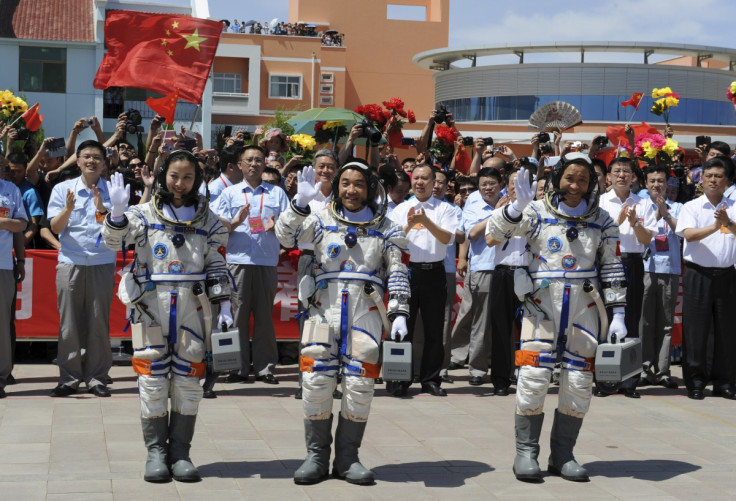China wants to visit Mars by 2020 and beat Nasa to set up the first manned moon base

China has announced that it intends to explore Mars and plans to get there by 2020, as well as being one of the first countries to explore the "dark side" of the moon.
In a rare video interview with the BBC, Wu Weiren, a high-ranking official in the China National Space Administration (CNSA) who served as chief of China's moon and Mars missions, revealed that China is currently working on a definite Mars probe exploration mission.
"We will orbit Mars, land and deploy a rover — all in one mission," said Wu. "We could have started our Mars mission earlier but finally the country has given its approval."
Interestingly, China also has its sights set on effectively colonising the moon by establishing a manned base.
"Our short-term goal is to orbit the moon, land on the moon and take samples back from the moon. Our long-term goal is to explore, land, and settle. We want a manned lunar landing to stay for longer periods and establish a research base," explained Wu.
"It's quite challenging to land there, but according to research there might be water or ice because of the lack of sunlight, so we'd very much like to check that out."
The Martian has made China hopeful
Contrary to what you might think, Wu stressed that China is very keen to collaborate with space agencies from other countries such as Nasa in the US – much like in the sci-fi film The Martian, where China's space agency offers its Taiyang Shen space rocket booster to send rescue supplies to Nasa astronaut Mark Watney, who is stuck on Mars with dwindling resources.
This is an idea that has been impossible since the US Congress passed a spending bill in 2011 expressly forbidding Nasa from working in China, due to a high risk of espionage.
"We would like to co-operate with the US, especially for space and moon exploration," he said. "We have urged the US many times to get rid of restrictions so scientists from both countries can work together on future exploration."
Reuters reports that a senior Chinese space official Xu Dazhe, the chief of the China National Space Administration, said at a press conference on 22 April that The Martian film shows that the US would not be adverse to working with China.
"When I saw the US film The Martian, which envisages China-US cooperation on a Mars rescue mission under emergency circumstances, it shows that our U.S. counterparts very much hope to co-operate with us," said Xu.
"However, it's very regrettable that, for reasons everyone is aware of, there are currently some impediments to cooperation. I believe that on this matter, China is more and more open, and I hope our American friends can take note."
US still worries about risk of espionage
In 2015, researchers from the University of California prepared a special report for the US-China Economic and Security Review Commission entitled China Dream, Space Dream: China's Progress in Space Technologies and Implications for the United States.
"Although China is probably truthful when it says that it is not in a space race, such statements mask the true intent of its space program: to become militarily, diplomatically, commercially, and economically as competitive as the US is in space," the authors wrote in the report.
"As a result, China's progress in space technologies, whether in relative or absolute terms, has implications for the US and its neighbours. Nevertheless, although China's space program may pose challenges for the United States and its space power neighbours, it may also present opportunities for scientific collaboration on the Earth's environment and outer space.
"In addition, it may make human space flight safer by providing additional capabilities to rescue stranded or imperiled astronauts through the use of common docking apparatus."
© Copyright IBTimes 2025. All rights reserved.






















